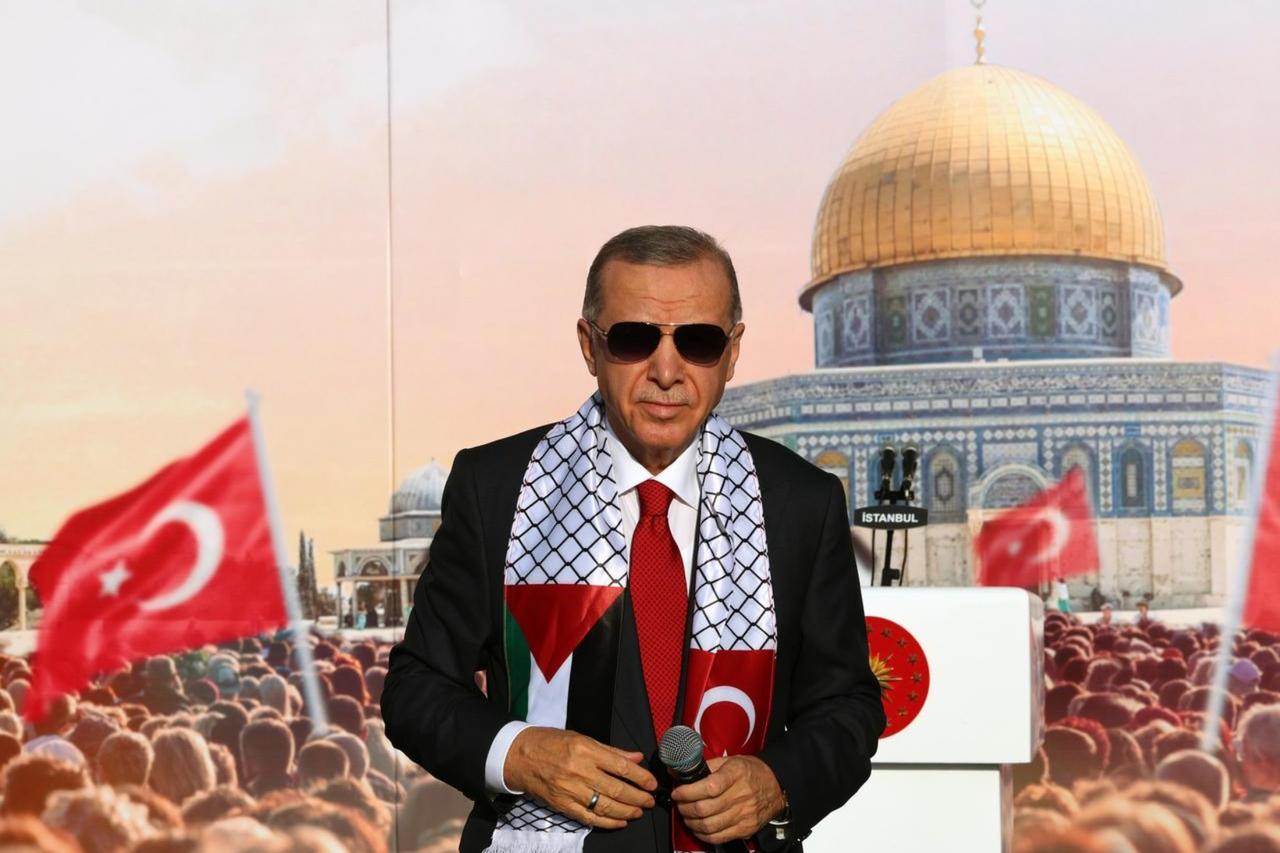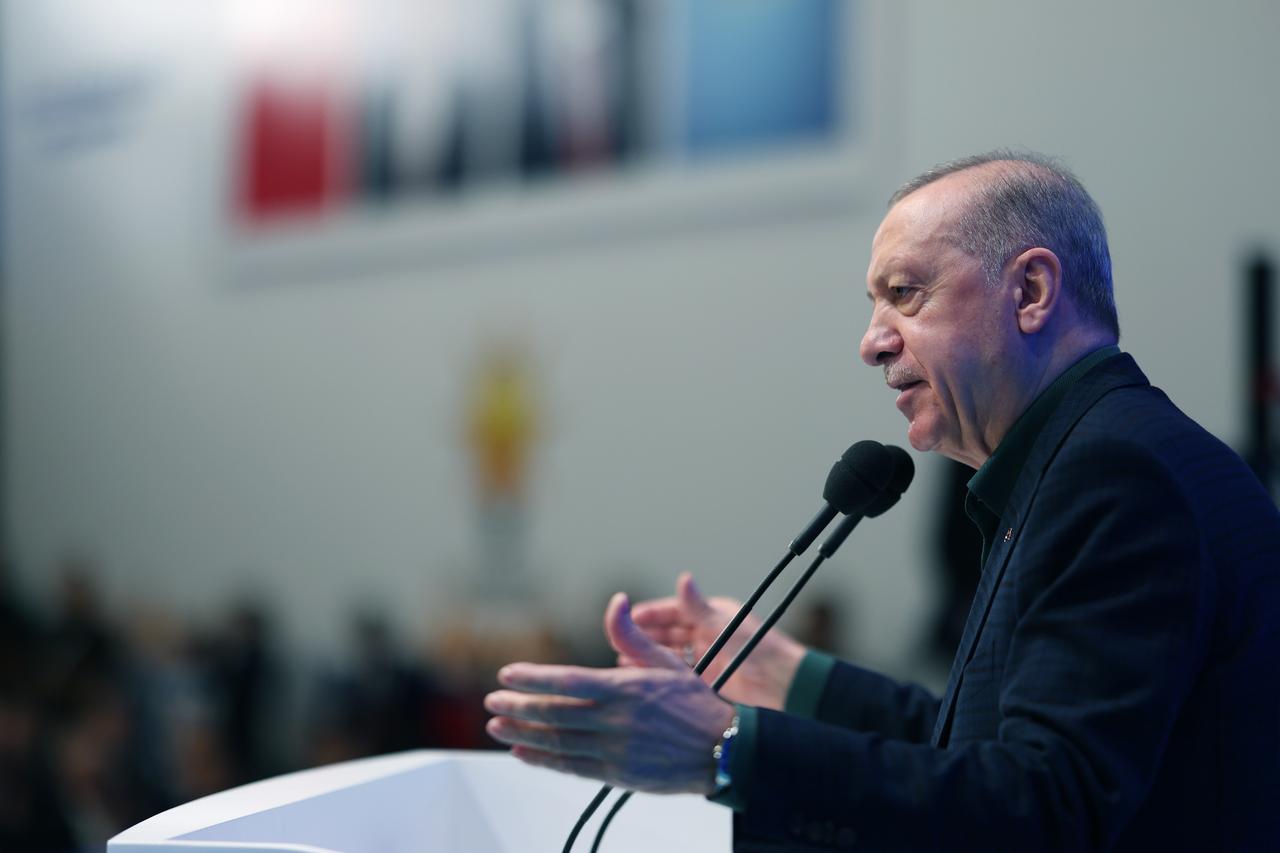
President Recep Tayyip Erdogan announced what he called the beginning of a “Jerusalem Alliance” on July 11, following the reported disarmament of a group within the terror group PKK.
The development, described by officials as historic in the days leading up to it, offered Erdogan an opportunity to reinforce Ankara’s message both domestically and across the region.
In a televised address, the president sought to address domestic doubts over the disarmament process, reassuring constituents skeptical of state concessions or confused by the nature of the move. However, the speech was also notably outward-facing.
Erdogan repeatedly emphasized Turkish-Kurdish-Arab unity, a phrase he used over 20 times, invoking the Seljuk and Gallipoli legacies as historical reference points for multiethnic cooperation under Turkish leadership.
The Turkish president stated that Ankara has recently intensified its contacts with Iraq, the Kurdistan Regional Government (KRG), and the Syrian government, signaling an effort to establish a regional sphere of influence through alignment with neighboring actors.
Framing this outreach in historic and symbolic terms, the renewed engagement with the terror groups across the Southern border of the country came as a strategic move. “Today, the Jerusalem Alliance is taking shape,” the president declared.

With Iran perceived to be in retreat, Türkiye is increasingly seen as a key actor in shaping the post-Iran Middle East. Türkiye appears to see a window of opportunity as Iran’s regional footprint shrinks.
Though there is still significant ground to cover in rebuilding, ties between Türkiye and Syria have reached a “historic peak” from the widespread use of Turkish among Syrian citizens and the presence of Turkish military bases in Syria, which has now brought Türkiye into proximity with Israel, albeit indirectly.
Many observers within Israel contend that following Iran, Türkiye represents the next perceived threat, expanding on their threat assessment radar. The country currently desires to create hostile entities in Türkiye's neighborhood, as is apparent in its operation to design a new regime in Tehran.
Israel simultaneously pursues that same possibility with the SDF in Syria, which is declared to be a terrorist organization by U.S. Ambassador Tom Barrack earlier this week.
Israeli Foreign Minister Gideon Saar gave "positive guarantees" to the group during a phone call in May. Yet Türkiye believes it can disrupt this encirclement through regional diplomacy rather than through overt military action.
The objective of persuading the foreign-backed and Kurdish-oriented terror group PKK to switch sides serves three roles: first, to prevent tension and instability in domestic politics.
Second, to avoid encountering Kurdish obstacles while expanding towards Iraq and Syria.
Third, to prevent a regional power like Israel from allying, particularly with the SDF. This calibrated posture, however, is presented not as a democratic reform initiative but as a pragmatic, security-driven move within a developing international order.
The Arab dimension of the alliance, meanwhile, is tied closely to economic and political considerations. Ankara envisions a deeper stake in post-war reconstruction efforts in Syria and Iraq, seeking influence in tenders and contracts, as well as a say in shaping regional policy through its Arab partners. This constitutes another reason for emphasizing the Arab component.
Countries' grand strategies are influenced by structural conditions. Türkiye's current government believes opportunities lie to the south. This orientation could have been directed toward the European Union, but the EU's condescending attitude toward Türkiye remained unchanged for years. Even Trump's arrival failed to provide sufficient warning.
However, Türkiye currently perceives opportunities in the south as long as it doesn't contradict the United States and can work with the US through leadership channels.
The current government in Ankara sees the south as the most promising theater for Türkiye’s ambitions. This focus contrasts with earlier attempts to integrate with the European Union, which were met with a condescending attitude in Brussels, even after the Trump administration, as the change was widely seen and apparent.
Now, Turkish policymakers believe opportunities in the Middle East can be pursued without direct conflict with Washington, relying instead on cooperation through regional interlocutors aligned with US interests.
So far, Erdogan’s rollout of the “Jerusalem Alliance” has attracted little immediate reaction in the Israeli media. But analysts caution that the narrative defining Türkiye as a revisionist power is already building within Israel, parts of the U.S. Congress, and Western media.
Some warn that if Ankara is increasingly cast as overstepping its role, it risks being pushed to the margins of the international system. That dynamic, Turkish officials acknowledge, makes the current rhetoric bold but also risky.
The “Jerusalem Alliance” underscores Ankara’s determination to seize what it sees as a strategic opening in the Middle East, even as it navigates the growing possibility of being branded an upstart by regional and Western actors.